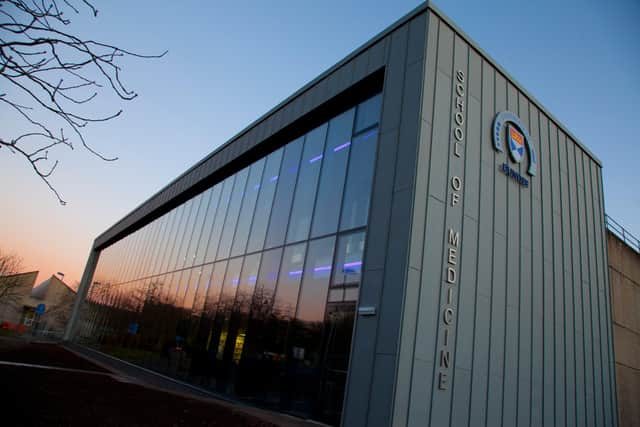New funding for research into first ever male contraceptive drug
Researchers at Dundee University have been given $1.7 million (£1.2 million) by the Bill and Melinda Gates Foundation for ongoing research.
They hope to identify suitable compounds with the potential to develop the first safe and effective male contraceptive drug.
Advertisement
Hide AdAdvertisement
Hide AdThe research could help to reduce inequalities by reducing the burden of preventing unwanted pregnancies which falls on women, researchers said.


By the end of the two year funding period, they hope to have identified a compound which could then be progressed to the first stages of developing a drug.
“There has been no significant change in the field of male contraception since the development of the condom,” said Chris Barratt, Professor of Reproductive Medicine at Dundee University’s School of Medicine.
“This means that much of the burden of protecting against unwanted pregnancies continues to fall upon women. We hope to address that inequality and we have already made progress, thanks to our previous round of funding received from the Bill and Melinda Gates Foundation.


He added: “Dundee is uniquely placed to continue with this research, combining our internationally recognised expertise in male fertility research within our School of Medicine, with our knowledge in drug design based within our School of Life Sciences.
“By the end of this two-year period we would like to have identified a high-quality compound that we can progress to the first stages of drug development. That would be a significant step forward for the field and could potentially be the key that unlocks a new era in male contraception.”
Researchers said the “urgent” need to develop new methods for male contraception has been hampered by a poor understanding of human sperm biology and the lack of a system to screen the current drugs available, among other factors.
Scientists at Dundee University have already developed a testing system to precisely show the movement of human sperm, which allows them to accurately measure the effect of different drugs.
Advertisement
Hide AdAdvertisement
Hide AdProf Barratt said: “Dundee houses a world leading Drug Discovery Unit within the School of Life Sciences, which has proven expertise in innovative science and delivering translational science.”
“Our work is incredibly challenging, and so the importance of being able to work with world-class research colleagues within the same institution cannot be overstated. Collaborative working is absolutely critical as we proceed and being able to do that in-house is a huge advantage as we progress with this research.”
It comes as another new study from Edinburgh University suggested a steroid used to treat Covid patients in hospitals could be used to reduce heavy menstrual bleeding.
If approved, dexamethasone could be the first new treatment of its kind for 20 years.
Heavy bleeding is estimated to affect around one in four women in the UK, and can impact daily quality of life.
Unlike current treatment options, dexamethasone could be suitable for those trying to get pregnant, and reduce side effects including unpredictable bleeding.
A message from the Editor:
Thank you for reading this article. We're more reliant on your support than ever as the shift in consumer habits brought about by coronavirus impacts our advertisers.
If you haven't already, please consider supporting our trusted, fact-checked journalism by taking out a digital subscription.
Comments
Want to join the conversation? Please or to comment on this article.
